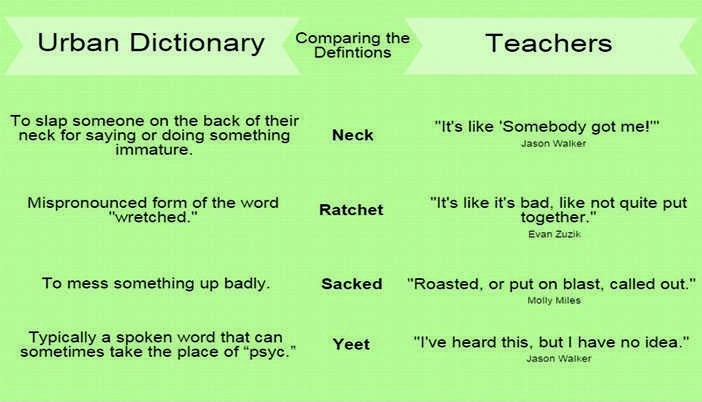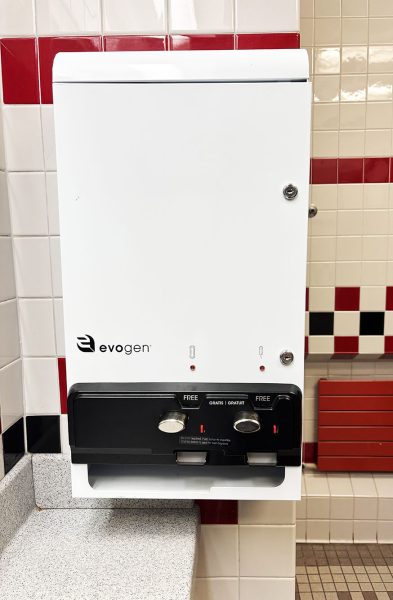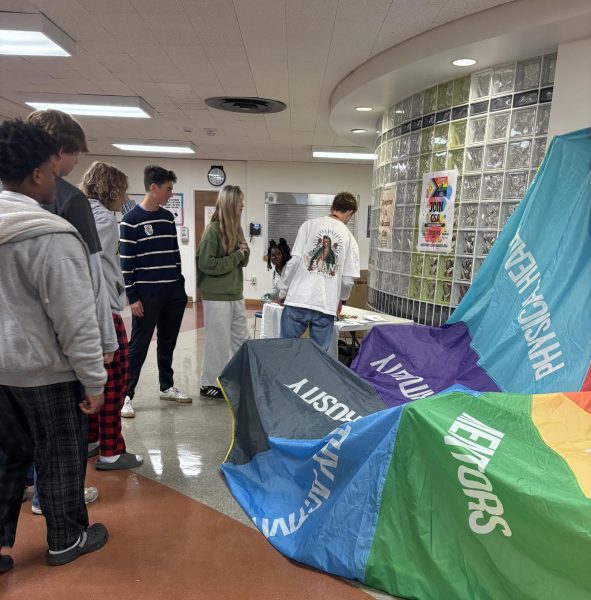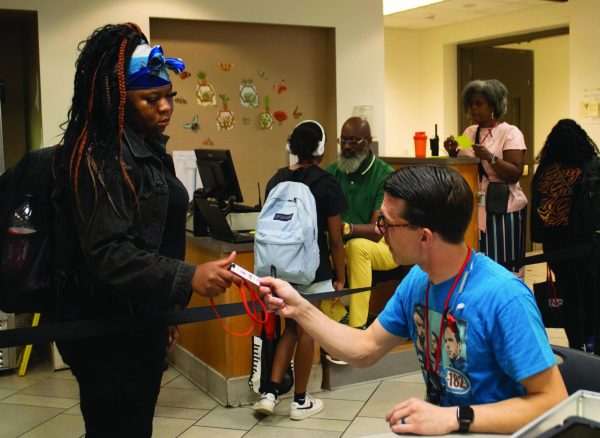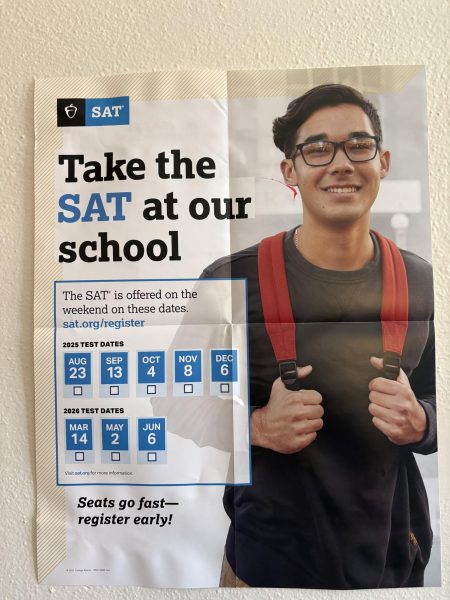Slang Revolutionizes Shaker Vocabulary
Shaker students sling slang like they are dealing cards.
Shaker Heights High School is a rich environment formation of its own unique usage and formation of slang words.
Slang words and phrases enable students to communicate informally with their peers. Slang is often restricted to groups of people — usually teenagers — and in specific contexts. Teenagers typically use slang because they see it as a way to communicate informally.
“To me, it means a modern version of words,” sophomore Josh Jacobs said.
Words can be spelled or pronounced differently to create a new meaning. Shaker Heights students have used a variety of slang in past years. Some words come from social media, while others pop up without a clear source.
“Slang, to me, are words or phrases used during casual conversations that form a unique dialect for a specific group of people,” sophomore Sarah Wingo said.
The popularization of social media allows slang to spread across the country faster and more easily, exposing more people to a new word. However, Shaker has maintained its unique slang vocabulary. “Slang at our school likely differs from Cleveland or Warrensville Heights,” second-year English teacher Molly Miles said.
“I think Shaker has, in a way, formed our own slang vocabulary,” Wingo said.
Slang terms popular among students include sacked (to be shut down), blouse (an exaggerated no), on fleek (to be flawless), and the most popular Shaker-specific term, neck (used when someone does something ridiculous).
“I think Shaker has a semi-unique slang dialect, but we share some slang with other places,” junior Elise LaFramboise said.
“I hear it from friends, or we make it up,” Jacobs said.
Freshman Theo Miller moved to Iowa from Shaker at the end of the 2014-15 school year.
“When I was [at Shaker], I heard neck the most often,” Miller said. “I live in Davenport, Iowa now. The slang is different but it is still there,” he said.
Sophomore Amelia Morris moved to California from Shaker in November of the 2014-15 school year.
“Shaker has both its own slang, along with the adaptation of more national terms,” Morris said. “To me, slang is a word, term, or phrase that starts off with no specific meaning, and adapts its way into a region’s lifestyle.”
While slang does differ by region, so do traditional words and phrases. “In California, it’s called a permit instead of temps. If I am talking to someone in Ohio, and I use the term permit, it will cause confusion, and I’ll then have to explain how it’s a temp,” Morris said.
“Slang in Shaker tends to spread pretty fast between friend groups and grades,” Wingo said.
“In Shaker, you could stumble upon a word, change it’s meaning, and the term would spread like wildfire,” Morris said. “Within a week, it will be making its way into everyday situations. Some slang has been worked on to become a thing, and some become a common term without much effort, like necking.”
Teachers occasionally choose to use some of the trendy words in class as a joke to increase the students’ attention.
“I think students connect better with teachers that use slang because it helps students feel more comfortable with the teachers,” Jacobs said.
“Kids think it’s funny when a teacher uses slang because sometimes they use it wrong, or we don’t expect them to know what a word means or how to use it,” freshman Sophie Greff said.
“I can imagine it’s because they think it’s funny that someone older or in authority is coming down to their level and connecting through their commonly used phrases,” Miles said.
Science teacher Jason Walker said that often the first time he uses slang in a class he gets a reaction, especially if he says it correctly. “If I use it incorrectly, I get a much different type of laugh,” Walker said.“I often only use slang to sound silly,” science teacher Evan Zuzik said. “I have never said ‘thirsty’ seriously.”“They are surprised that I can pick up on their new-fangled culture,” Walker said of his students.
Teachers used different slang terms while in high school, proof that it changes quickly.
“We used to say like a lot. ‘Like, what are you, like, doing for, like, dinner tonight?’ It used to drive everyone crazy,” said Zuzik, who graduated from high school in 2005. He also mentioned that people would say “24/7” frequently, something that still pops up today.
When Miles was in high school, students would use the phrase that’s so jake, which meant something was lame.
Teachers often rely on their students to define slang for them. “Sometimes I just blatantly ask students to define it. Initially many are hesitant to share,” Miles said
“I often either ask another teacher, ask a student or Google,” Zuzik said. Zuzik also said that occasionally he doesn’t know if a particular word or phrase is disrespectful or should be said in a school setting. “Netflix and chill threw me a bit,” said Miles. “When I first heard the meaning, I was shocked.” The expression began as a euphemism for what was previously called hooking up, but now, most people use it ironically. “To me, it still means gorging on ice-cream while binge-watching my favorite shows,” Miles said.
“I think I usually look confused and then a student explains it to me,” science teacher Michelle Child said about hearing new words in the classroom.
“At least they’re branching their vocabulary!” Walker said.
Slang comes from people all around the country, often spreading through Vine, a form of social media in which six-second videos are uploaded, usually to be humorous.
A common word that popped up in the 2014-2015 school year was got ‘eme, a variation of got ‘em, which originated from Vine and is used to respond negatively to another’s statement. It still pops up in conversation.
“Even if you don’t use a term or phrase, you’ve probably heard [of] it,” Wingo said.
When students encounter a new word that they don’t know, they consult Urban Dictionary. The site contains hip slang and phrases that people say helps with definitions and examples of the terms, typically written by teenagers. Some definitions are more tasteful than others. The site also offers definitions of slang terms that are no longer in style and provides the most popular definition for easy learning. The Urban Dictionary definition of on fleek is “the quality of being perfect, or on point.”
“It’s kinda fun getting teachers ‘hip to our lingo,’ ” Wingo said.
Often, students use slang more than necessary, even several times in one sentence.
“It’s annoying when kids try to use it more than they should. They’re trying to use it to use it,” Walker said.
“The one that continues to come up that I personally feel is overdone and not funny is the infatuation with the number 21,” Miles said, referring to a Vine in which a man asked a little boy what 9 plus 10 equals. The boy responded, “Twenty-one” in a peculiar voice.
So far this school year, a few new words have popped up in the hallways. The most popular seems to be sacked, as in, “that test really sacked me.”
Other recent Shaker slang fads include yeet (a word that can take the place of psyc), sus (something suspicious), and bet (an agreement).
“A word stays in style until another word takes its place,” Greff said.
“I think modern slang terms tend to be an odd mix of words from other generations and something that we created,” Wingo said.
A slang word’s lifespan can last for months, or even years, depending on how much people love a certain word. Everything goes in and out of style, especially slang, and sometimes words come back into the spotlight.
“People will use slang until it’s not ‘cool’ anymore,” Miller said.
“Is triflin’ coming back?” Zuzik asked. “I hope so.”

